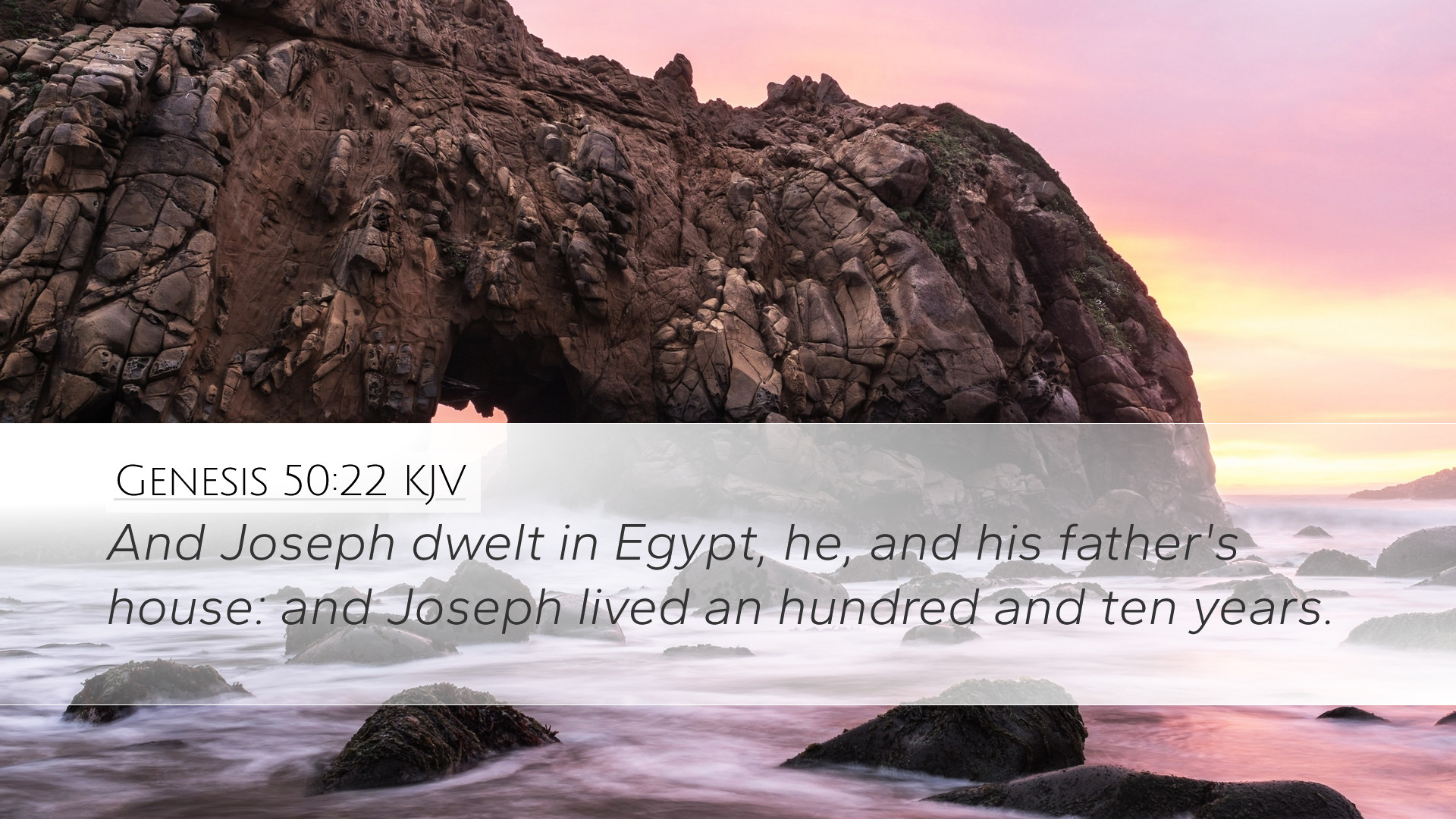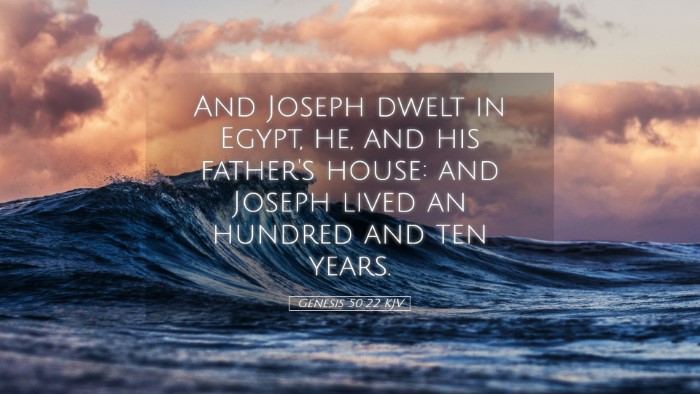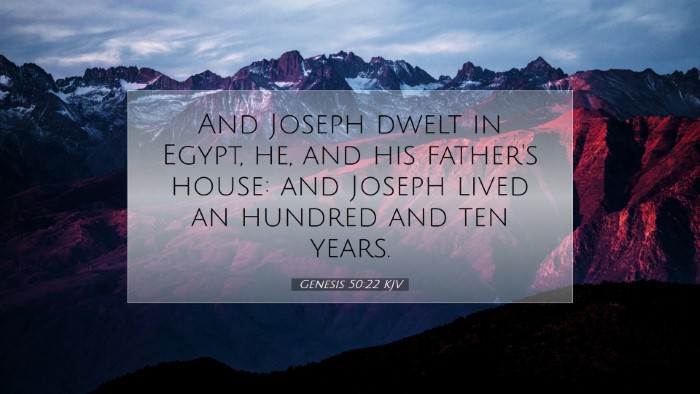Commentary on Genesis 50:22
Verse Text: "And Joseph dwelt in Egypt, he, and his father's house: and Joseph lived an hundred and ten years."
Introduction
This verse concludes the narrative of Joseph's life in the book of Genesis. Joseph became a significant figure in both Israelite history and biblical theology, symbolizing God’s providence and the fulfillment of His promises. In this commentary, we will explore the implications and theological themes of Genesis 50:22 through insights from notable public domain commentators.
Joseph’s Life in Egypt
Matthew Henry's Commentary: Henry emphasizes the providence of God throughout Joseph's life, from his rise to power in Egypt to his eventual family reunification. He notes that Joseph’s residence in Egypt signifies not only the physical security of his family but also the beginning of a divine covenant that would later manifest in the Exodus. Joseph’s faithfulness in a foreign land serves as a testament to God's ability to maintain His people, even in circumstances of displacement.
Albert Barnes' Notes: Barnes points out the significance of Joseph dwelling in Egypt as the fulfillment of Jacob’s earlier prophecy regarding the sojourn of Israel in a foreign land. Joseph's longevity of life, living to 110 years, is seen as a blessing and a reward from God for his integrity and service. Barnes also reflects on Joseph's role as a provider and protector, emphasizing his duty to care for his family during times of famine, which further illustrates God’s overarching plan for His people.
Adam Clarke's Commentary: Clarke provides additional context regarding the duration of Joseph's life. He notes that at 110 years of age, Joseph enjoyed a full life and saw the fulfillment of many familial and national promises. Clarke highlights the importance of Joseph's longevity as a historical anchor for the narrative of Israel’s future. His influence in Egypt not only preserved his family's life but also secured a legacy that would shape Israel’s identity.
Theological Themes
- God’s Providence: All three commentators highlight the theme of divine providence evident in Joseph’s life. His rise from a slave to the second-highest official in Egypt underscores the belief that God orchestrates events for His glory and the good of those who love Him (Romans 8:28).
- Familial Unity: The importance of family and reconciliation is a recurring theme. Joseph’s ability to bring his family together in Egypt illustrates God’s intent to preserve the lineage of Israel, ultimately leading to the Messiah.
- Covenant Fulfillment: The mention of Joseph’s longevity and his father’s house points to the covenantal relationship between God and Abraham, Isaac, and Jacob. Joseph's story exemplifies how God fulfills His promises across generations.
- Hope in Adversity: Joseph's life is a powerful message of hope amidst suffering. The commentators agree that despite his hardships, including betrayal and false imprisonment, God used each circumstance to further His plans, teaching us about resilience and faith.
Life Application
For pastors, students, theologians, and Bible scholars, Genesis 50:22 offers profound lessons:
- Faithfulness in Trial: Like Joseph, believers are encouraged to remain steadfast in faith during life's challenges, trusting in God's greater purpose.
- Legacy and Influence: Joseph’s life encourages individuals to consider the legacy they leave behind, both in the family and community. It calls for intentionality in nurturing relationships and faith.
- Providence and Promise: This passage reminds us of God’s continuous work in our lives, reinforcing the assurance that He is at work, orchestrating events even when circumstances seem dire.
Conclusion
Genesis 50:22 serves not only as a historical account of Joseph's life but as a rich source of theological reflection. The insights drawn from public domain commentaries provide a multifaceted understanding of the text, illustrating themes pertinent to faith, providence, and the nature of God’s promises. As we contemplate Joseph’s life, we are invited to reflect on our own faith journey, seeking to walk in the divine purpose that God has for each of us.


